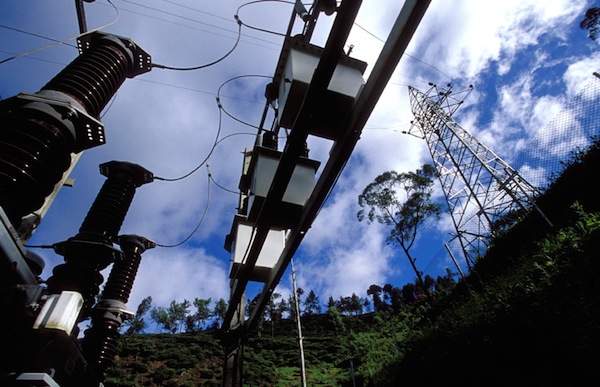Photo courtesy World Bank
“If a tree falls in a forest and lands on a politician, even if you can’t hear the tree or the screams, I’ll bet you’d at least hear the applause.”
Paul Tindale
Something is of universal value if it has the same value or worth for all, or almost all, people. This claim could mean two importantly different things. First, it could be that something has a universal value when everybody finds it valuable. This was Isaiah Berlin‘s understanding of the term. According to Berlin, “…universal values are values that a great many human beings in the vast majority of places and situations, at almost all times, do in fact hold in common, whether consciously and explicitly or as expressed in their behavior…”. If such were the case, it would seem logical that ‘a benign quality of life’ would constitute a most fundamental universal value. From there arises the various issues of fertility, pleasure, or democracy as universal values.
The term quality of life is used to evaluate the general well being of individuals and societies. The term is used in a wide range of contexts, including the fields of international development, healthcare, and politics. Quality of life should not be confused with the concept of standard of living, which is based primarily on income.
The quality of life may be benign, free from perturbation and stress or malign, constantly exposed to perturbation and stress. These two states are two poles of a continuum that describes this ‘quality’. Thus the maintenance of a benign environment that protects the human being should be the primary concern of any development programme. After all, it is for the benefit of humanity that all development programmes are mooted.
The human being is a biological entity. The ideal state for such an entity is when it is healthy and free from any harmful or injurious input. Both science and tradition have identified many inputs that are harmful or injurious to the biological being. Since the ideal conditions for biological organisms are being free from these negative inputs and since development must be a movement towards the ideal state that enhances our quality of life; we can summarize that ‘Any process or activity that leads to the reduction of the biological quality of life cannot contribute to real development’ or that ‘any process or activity that produces physical or chemical inputs demonstrable to be injurious to human well being leads to mal development. Such a stand will allow people rather than abstract concepts to attain greater importance in the assessment of ‘development’. Thus no amount of economic gain, media or propaganda should be able to justify the erosion of the well being of people.
Development, beyond the provision of human well-being, becomes a particular word view or set of values. In today’s declining quality of life, the development paradigm addressing public health or agriculture is still driven by the same values that created the problems. How to incorporate the scientific reality of the erosion of public health and environmental sustainability in setting development goals? Will certainly be a question that calls for urgent answers.
Traditional society worldwide represents a wide diversity of expression, reflecting a long history of co-evolution with the local landscapes. The product of these incredibly long processes of ‘informal research’ is codified as traditional knowledge and practice. The inroads of modern consumerist society, the present claimant to globalization, are rapidly homogenizing many traditional societies, in pursuance of development. Often it is neither democratic nor requested by traditional people. There is no recognition of the fact that each society has a worldview that must be recognized and incorporated into the international agenda of development.
In addition to being sensitive to the needs of the land, there must also be recognition of the fact that agrarian societies with long histories, posses the credibility of having sustained themselves successfully under the rigor of survival in the natural world. The concern for the future is that the model chosen for sustaining future global agrarian society is an energy and resource demanding production system. The sustainability of which is dependent on the timely delivery of external inputs.
Agrarian societies have existed on this world for a very long time. Many in existence today have historical records that attest their capacity for sustainability. The challenge is to understand their structure well enough, so that it provides the paradigm for development. Development, in this context will mean capacity building within the traditional paradigm. The aspects of globalizing such a plurality are challenging, it requires addressing phenomena that have meaning to all members of such a plurality. For instance, climate change is a global phenomenon that has the potential to affect all agrarian society. Sustainability of the production base is another. Yet no investment is being put into developing the traditional approaches to agriculture. Development funding is still narrowly focused towards ‘Economic Development’ and ignores all other considerations of ‘Development’.
Perhaps it is time to revisit development once again. Economic yes, but it must also be ecologically and socially valid. In Sri Lanka the tragedy of uneducated and greedy politicians, tutored by conniving bureaucrats mindlessly cheering the process of ‘economic development’ is evident. The fact that they do not consider any other aspect of sustainability, must demonstrate the bankruptcy of a national vision and of any responsibility to the nation.
A development process that creates massive infrastructure, mega buildings etc. requiring enormous quantities of energy to maintain them, without considering the long-term cost of providing fossil based energy, cannot contribute to sustainable development. It will result in the construction of more and more polluting energy plants dependent on external sources of fossil energy that we will have to purchase from an ever-expensive market. Borrowing money for such an extravagant lifestyle is no way to make the future sustainable.
Our political pundits are fond of using terms such as Universal Values and Accountability to window dress the ongoing charade. It is even more tragic to read the words of politicians who claim to represent the Buddhist view when they state:
“The so called development based on greed and excessive utilization of the natural resources of the world, …Excessive consumption of meat is a sacrilege of vegetation and animals… To build artificial towns that are only a travesty is the motivation (of developers).”
And then go on to support enthusiastically the addiction of the nation to energy consumption. What hypocrisy!
To see the consequence of the current ‘ Economic Development’, that our politicians so unquestioningly participate in, should be obvious to the educated. Energy addiction is the worst form of addiction as it impacts a whole nation, not just the individual. To miss the obvious connection between ‘Economic Development’ as sold today and the need for ever-increasing deliveries of power, is to blind or ignorant.
As for accountability in Sri Lanka, the response of Mahatama Gandhi to the question of what he thought of ‘Western Civilization’, might be well applied. His response was ‘What a good idea !”. The challenge before us is, how to make manifest this ‘good idea’ of accountability in the sea of impunity and corruption that we are mired in.


